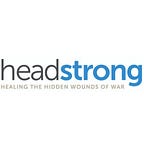‘Facing Stigma’ with Bridgette B.
“Growing up in Mississippi, I fundamentally knew we were descendants of slaves. That being said, much of our family history was lost so finding out that my great-great uncle was in the Buffalo Soldier’s Division during WWII really made it clear that there was this deeply rooted service in my family. He went missing in action during the war and we just found out a few years ago that he was buried in Florence, Italy. My grandfather and father would go on to serve as well. Being in this new generation of women in my family who serve, it’s just an interesting dynamic that I want to be close to this uniform. My service has been more about continuing my family’s legacy and ultimately the reason I decided to go to West Point rather than Harvard. After graduating, I commissioned into the HR field and was sent to Fort Bliss in Texas for my first duty assignment. When people think of HR, they don’t realize how different it is in the Army. It’s made up of sexual assault response and prevention, equal opportunity and diversity inclusion, suicide prevention, etc. They all fall under the HR individual’s purview at the unit level. I shouldered a lot of that burden for almost four years with the unit I deployed to Mosul, Iraq with in 2006. A large portion of my deployment consisted of preparing to process the paperwork for individuals who had been killed while we were there; however, what I wasn’t expecting were the suicides that happened over there. We had one in my unit that shakes me to my core this day because his battle buddy was going to get him help when it happened. It reiterated that our approach back then put the onus so much on the battle buddy and not necessarily the individual. I left my deployment with that continually in the back of my mind. I think of the Soldier all the time, but I think even more about his battle buddy who had to carry that and the impact it probably had on him. After losing a friend a month before deployment, dealing with a divorce, and all the other issues that presented themselves over there; I was emotionally exhausted.
I considered going to speak with someone, but I just didn’t have the time and really pushed it off because I jumped into a command assignment at Fort Myer, VA for one of the largest companies in the Army. Unbeknownst to me, we dealt with suicide prevention, substance abuse, mental illness, etc. There was this weird balance knowing everything about a Soldier’s situation and life, treating them all equally and without bias, all while trying to keep everyone motivated every day. It was exhausting and I would take the worry for their case or condition home with me. I had a commander sit me down and explain this thing called empathy fatigue and he thought that I might have it. He just encouraged me to take care of myself while I was taking care of everyone else. I ended up getting selected for an Aide position after command and when I first started the job, my body completely gave up on me. I didn’t know what to do and Walter Reed originally diagnosed me with lupus. After third and fourth opinions and two years of tests and appointments, I found out I had Celiac. All of this happened while I was still preparing to teach at West Point and pursuing my Masters. After three years at West Point, I committed to becoming a Psychologist — and also had a baby while getting my PhD, so the empathy fatigue reached a whole new level last year. I realized if I was going to be a good mom, partner, friend, Soldier, and therapist, I needed to put some energy behind consistent therapy. I reached out to Headstrong and they connected me to my therapist MaryAlyce. I immediately was drawn to her energy and our work with EMDR modality has been amazing. I needed to process some of the things I was dealing with so through EMDR and her instruction we were able to do that. Headstrong has allowed me to reconnect to my humanity again because I feel like I’m seen as a human being and not just a service member. So much more is clear to me now, which I would tell a client it means that you’re integrating therapy into your life and not pausing your life in order to get treatment.”
